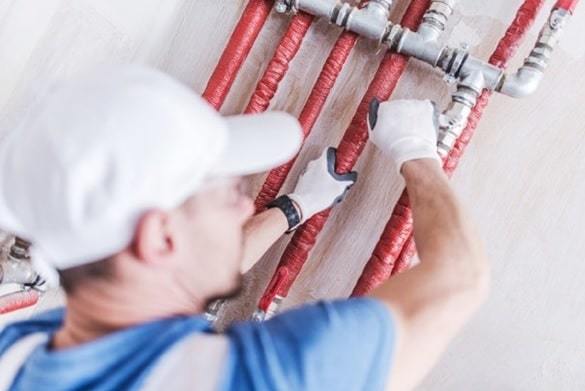When it comes to emergency plumbing for homeowners, being prepared and knowing a few essential tips can save you both time and money, and possibly prevent significant damage. One of the most important things to remember is to act quickly and calmly when faced with a plumbing issue. Start by knowing how to locate your main water shutoff valve. In the event of a major leak or burst pipe, turning off the water supply to your home is crucial to minimize damage. Typically, the valve is located in the basement, crawl space, or on the exterior of the house. It is wise to familiarize yourself with its location before an emergency arises. Once the water supply is turned off, the next step is to assess the situation. For minor leaks, such as those from a dripping faucet or a small pipe crack, you might be able to manage with some basic tools and materials.

A pipe repair clamp or plumber’s tape can provide a temporary fix. For a leaking pipe, applying plumber’s tape around the damaged area can help stem the flow until a permanent repair can be made. However, if the leak is substantial or if a pipe has burst, it is crucial to call a professional plumber immediately. Attempting a DIY repair on a major issue without proper knowledge could lead to further complications. In addition to knowing how to shut off the water and making temporary fixes, understanding how to handle clogs can be incredibly helpful. If you encounter a clogged drain, start by using a plunger. Ensure there is enough water in the sink or tub to cover the plunger’s cup and give several firm plunges to dislodge the clog. For more stubborn blockages, you might need to use a drain snake or auger, which can reach further into the pipe.
Chemical drain cleaners are generally not recommended as they can be harsh on your pipes and may not be effective for all types of clogs. Another essential tip is to maintain your plumbing system regularly. Preventative maintenance can help you avoid emergencies altogether. Regularly inspect visible pipes for signs of leaks or corrosion, and ensure that local plumber in Milton Keynes fixtures are in good working condition. Avoid flushing anything other than toilet paper down the toilet, and use drain screens to catch hair and other debris that might cause clogs. In summary, effective emergency plumbing involves knowing how to quickly shut off your water, addressing minor issues with temporary fixes, understanding how to manage clogs, and maintaining your plumbing system proactively. By following these tips, you can handle most plumbing emergencies with confidence and reduce the risk of costly repairs.
